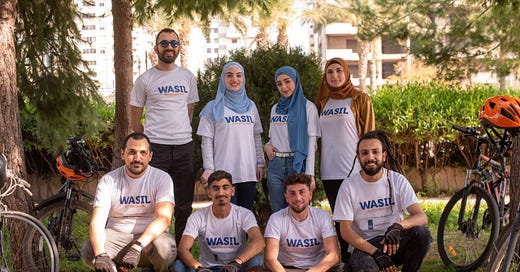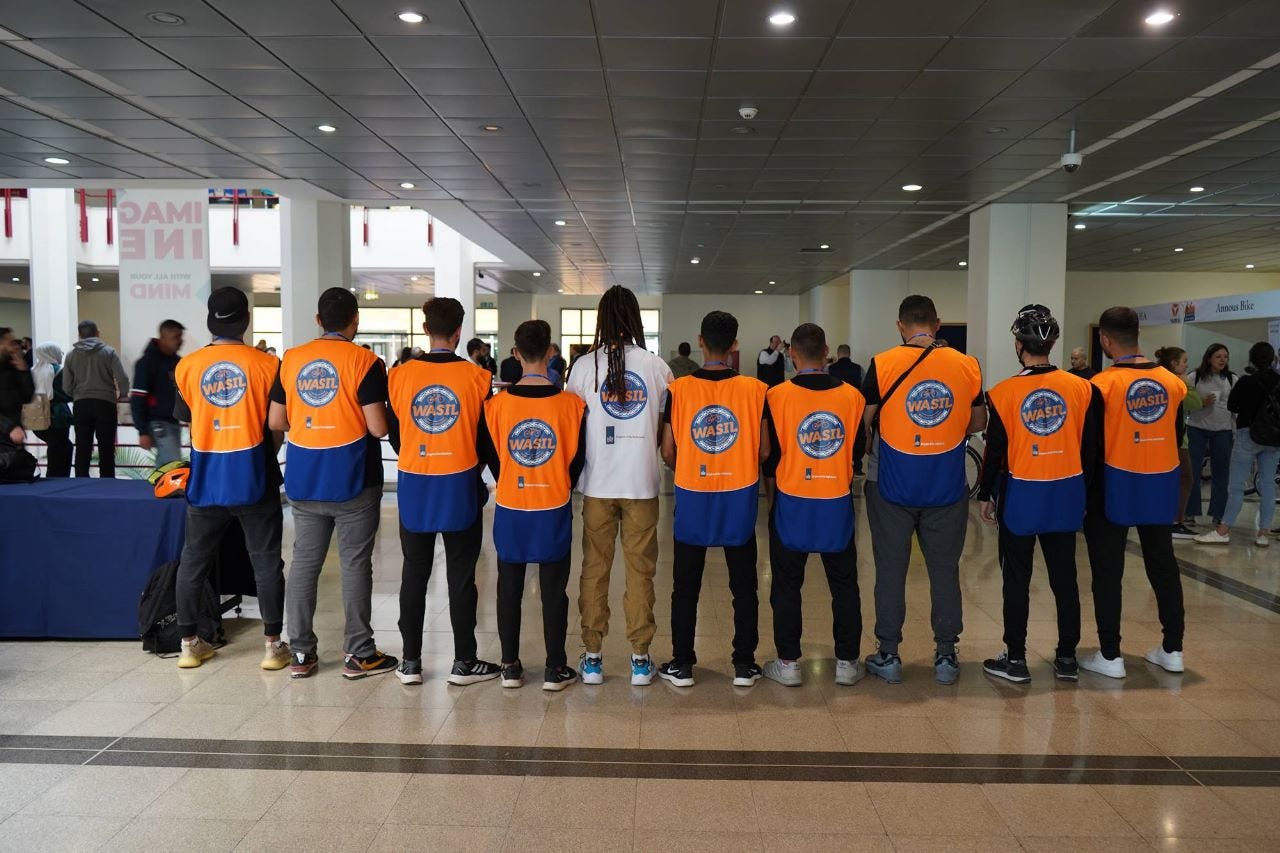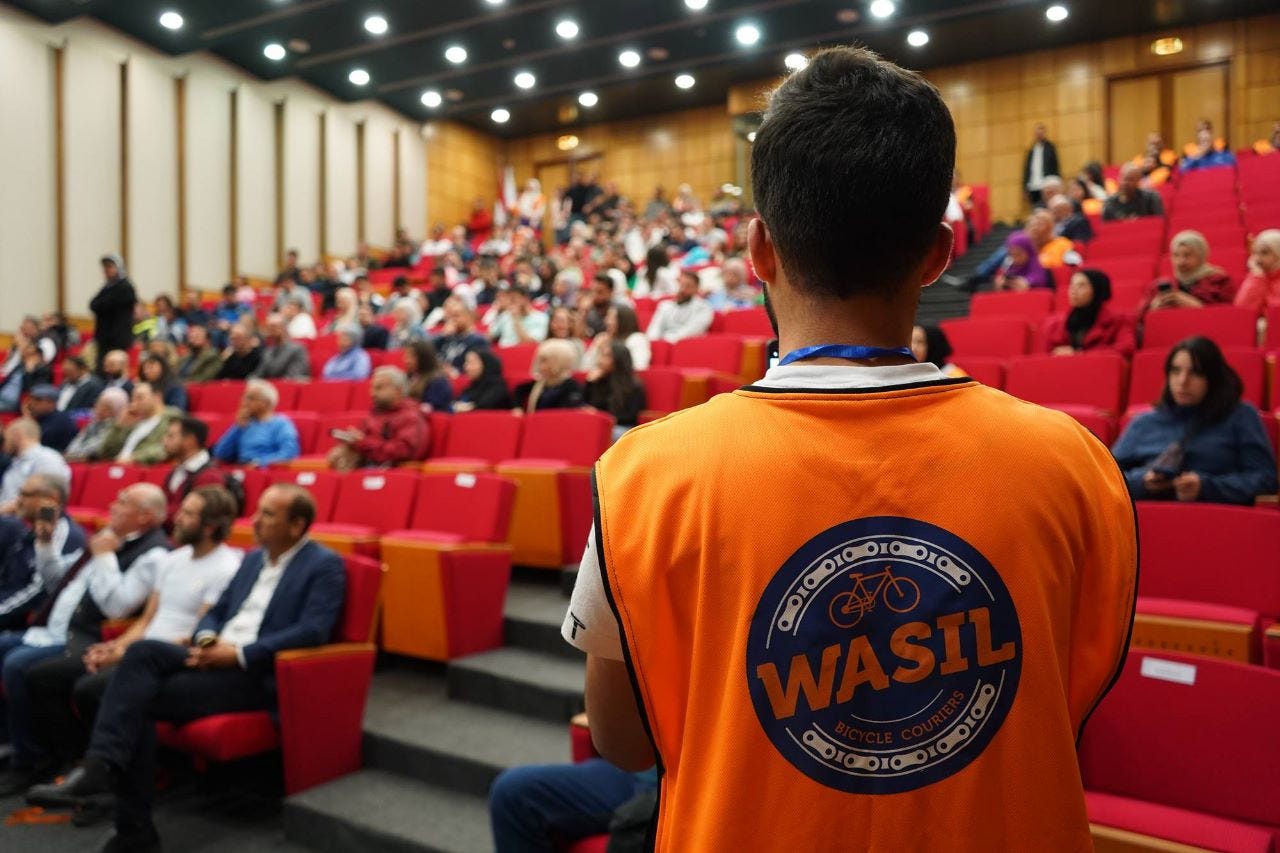Tripoli By Bike
A new courier company is challenging the dominance of cars in Lebanon’s second city
Nour Lachin doesn’t wear a helmet when she cycles around Tripoli. The idea makes her laugh. The city in North Lebanon is not easy to navigate by bike – roads are choked with traffic, cars park on pavements and motorbikes accelerate through the gaps with little regard for rules. But that hasn’t stopped Lachin from riding her bike through the streets, even before it became fashionable in recent years as more residents discover an alternative way to travel around Lebanon’s busy second city.
“I love cycling, when I’m on my bike I feel free,” says the 28-year-old, who jumped at the opportunity to work with Wasil, a new courier company that is driving the two-wheeled trend in Tripoli. “I was very excited when a friend told me the delivery was done by bikes,” says Lachin.
In the past, it was unusual to see women cycling in Tripoli, which is traditionally viewed as more conservative than the Lebanese capital Beirut. But in recent years female cyclists have become regular road users, challenging patriarchal norms and claiming their right to travel by bike. “The new generation is more daring and willing to demand equality,” says Lachin.
There’s also an element of necessity driving the shift to cycling in Tripoli, which was already Lebanon’s poorest city, even before the pandemic and economic crisis pushed thousands more people below the poverty line. “I always wanted a bike and to stand up for my rights, but the biggest motive for me now is that cycling is much cheaper than taxis,” adds Lachin.
For those without a car, there are few alternatives in Tripoli, where public transport is extremely limited. Wasil founder Natheer Halawani has always traveled by bike and made it his mission to encourage others to do the same, becoming the bicycle major of Tripoli in 2018 to raise awareness about the advantages of cycling. “It helps me exercise every day, makes my commute more enjoyable and minimizes my carbon footprint. Plus, the speed at which you cycle is the perfect pace to enjoy and explore the city,” says the 36-year-old.
Halawani started cycling when he was 15 and had limited funds to take taxis. “I decided a bike would be a better investment,” he says. During the pandemic, he bumped into a friend, another cyclist, who was delivering food to someone in need. “In the lockdown, Lebanese were only allowed to travel by bicycle - walking or traveling by car were banned. I had the idea for Wasil right away,” he says.
At first, it was just a bit of fun to occupy the extra hours during lockdown evenings. “We picked a name, made a logo and scoped out interest. People loved it,” he says. Then he secured a grant for $1,000 to purchase some bikes, followed by more grants for larger sums, including an Innovation Hub grant from Ideas Beyond Borders. “Now we’re covering Beirut and Tripoli and have 10 members of staff, including seven delivery riders,” he adds.
All Wasil deliveries are done by bike, focusing mainly on non-perishable items like clothing and accessories. Next, they plan to move into cakes and flowers, with a specially designed box that fits on the back of the bikes. “We realized people were using a whole car to deliver a single cake because they can’t trust motorcycles,” Halawani explains.
Gradually, he hopes to improve the environment for bicycles, collaborating with Ngos to install bike racks on buses and host events that encourage more people to take up cycling. To date, Wasil has carried out close to 1800 deliveries, amounting to around 16,000km traveled by bike instead of a car. “That’s a lot of carbon emissions saved,” Halawani adds.
Cars are still the primary mode of transport in Tripoli, where gridlocked streets and the furious honk of car horns are part of everyday life. At present, there are only two bike lanes covering very small sections of the city and no safe storage options for people who want to park their bikes outside. But gradually, cyclists are becoming ubiquitous in the city’s streets, which reassures Halawani that progress might be possible.
“I used to look out of my window and see a few bikes an hour, now there’s one a minute,” says Halawani. “And the biggest change, what’s really beautiful, is that it’s mostly women riding them.”






